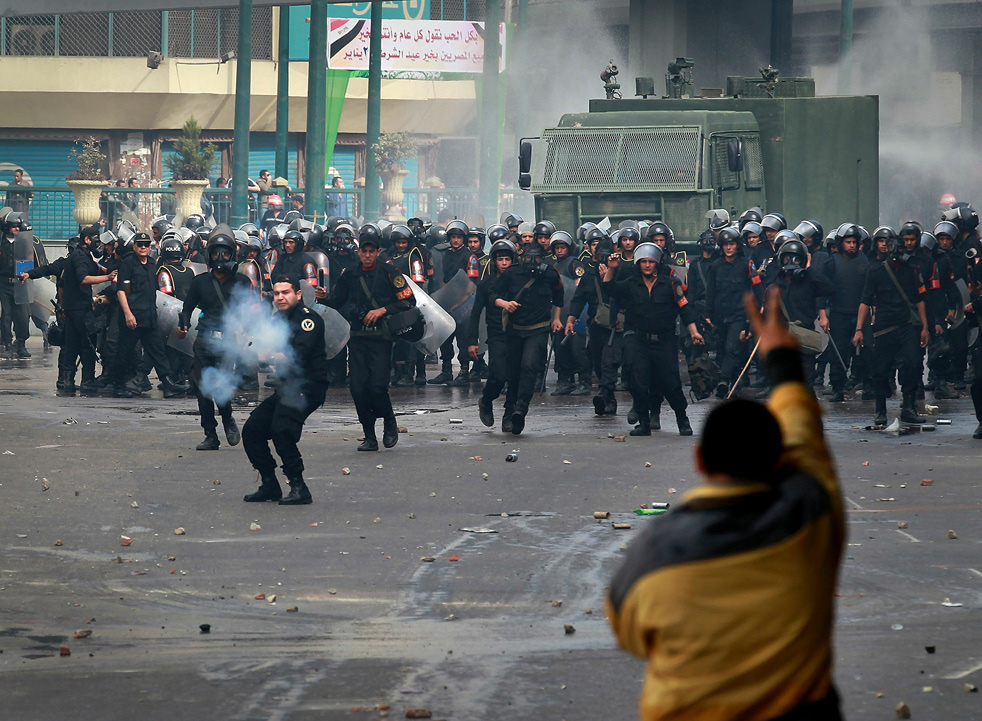By Reem Abdellatif /AP
CAIRO: A leading international human rights group on Thursday cast doubt on an Egyptian report about the death of an alleged victim of police brutality and urged authorities to further investigate the incident.
The New York-based Human Rights Watch cited testimonies of witnesses who said they saw plainclothes officers beat a 28-year-old man from Egypt’s coastal city of Alexandria.
Khaled Saeid died after the June 6 encounter with the plainclothes officers. His family and Egyptian opposition groups said he was beaten to death by police.
The case became a rallying point for government critics who denounced it as an example of rampant police abuses under a three-decade-old emergency law during President Hosni Mubarak’s rule. The case led to street protests in Cairo and Alexandria. The US State Department called for a transparent investigation.
After Saeid’s death, a photograph circulated showing his jaw split, teeth broken and blood pouring from his head.
Police officials denied Saeid died of torture, saying he was wanted for various legal offenses, and died after attempting to swallow a packet of drugs and choked to death. The damage to his face in the photograph was due to the autopsy, forensic doctors said.
On Wednesday, Egypt’s prosecutor general said a second autopsy confirmed the police account of the death.
But HRW said there had been many discrepancies in the Egyptian investigation. It urged authorities to question and charge the two plainclothes officers, along with the local prosecutor whose initial probe failed to interview eyewitnesses and gather proper evidence.
“Witness accounts and the photographs of Khaled Saeid’s mangled face constitute strong evidence that plainclothes security officers beat him in a vicious and public manner,” said Joe Stork, deputy Middle East and North Africa director at Human Rights Watch. “All those involved should be speedily interrogated, and the prosecutor should fully investigate what caused the fractures and trauma clearly evident on his body.”
HRW’s statement cited several eyewitnesses who said they had seen the beating of Saeid.
One witness said Saeid struggled as two plainclothes policemen grabbed his head and banged it against a marble shelf in an internet cafe. Then, the witness said, they dragged him into the entrance of an adjacent building where they banged his head repeatedly against an iron door and kicked him in the stomach.
The doorman of the building, another eyewitness, also told HRW that he saw Saeid being beaten, gasping and pleading for his life. The second witness was quoted as saying the officers continued to beat Saeid after he had stopped moving.
HRW also criticized the police statement for claiming Saeid was a “wanted criminal,” with two convictions in absentia for theft and illegal possession of weapons, and that he had dodged his military service.
“Even if Khaled Saeid had been wanted in connection with some earlier offense, that does not give license to police to attack and murder him in cold blood,” Stork said. “The Interior Ministry statement is grossly irresponsible, implicitly condoning police brutality.”


